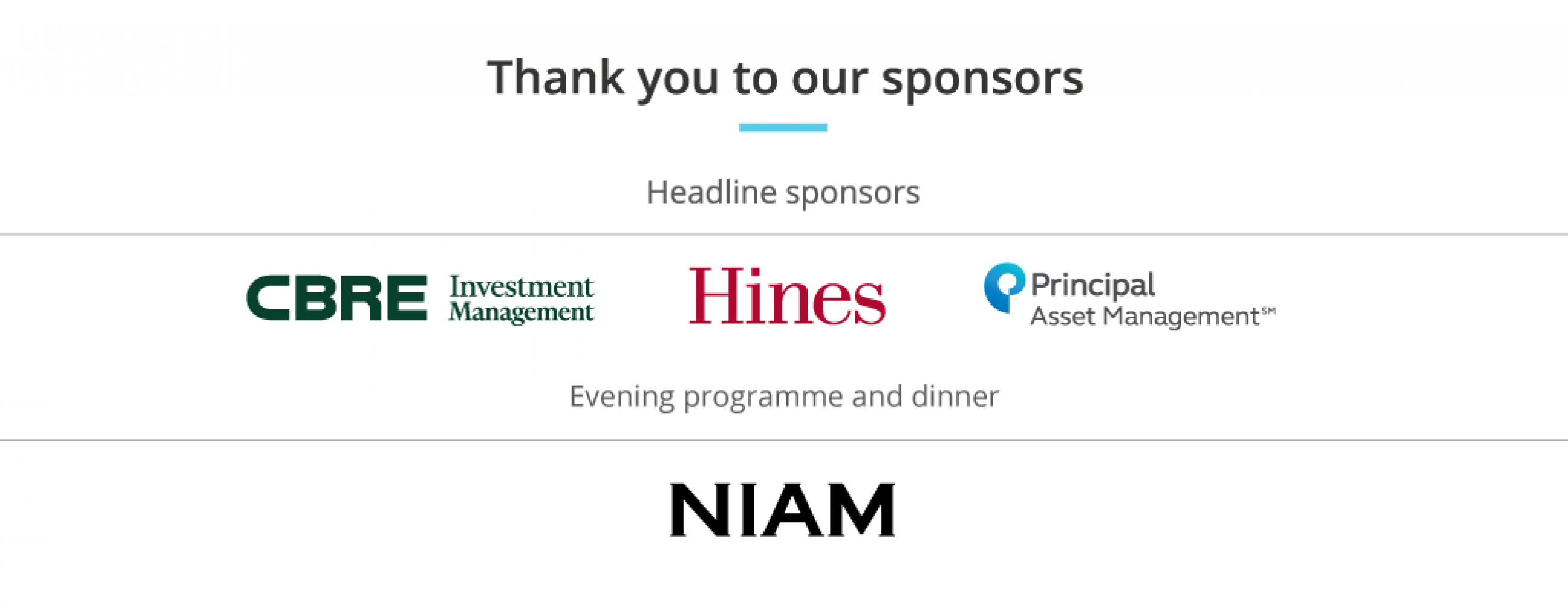Young Professionals Conference 2025: highlights
The INREV Young Professionals Conference 2025 took place on 3 July in the sunny and historic city of Lisbon, bringing together 180 young professionals (under 32) from across the non-listed real estate industry for a day of insight, inspiration and connection.
Set against a backdrop of shifting global dynamics and emerging investment trends, this year’s conference invited participants to explore how resilience, innovation and personal leadership are shaping the future of real estate. The agenda featured a powerful mix of keynote speakers, an expert panel and a practical workshop covering everything from biodiversity and geopolitics to personal branding and market repricing.
A special thanks to our moderators, Nioki Doggett (M&G Real Estate) and James Morrow (Hines), for guiding the day with clarity, professionalism and thoughtful engagement throughout the sessions.
Highlight video
The world on edge: power, pressure and politics (Karin von Hippel)
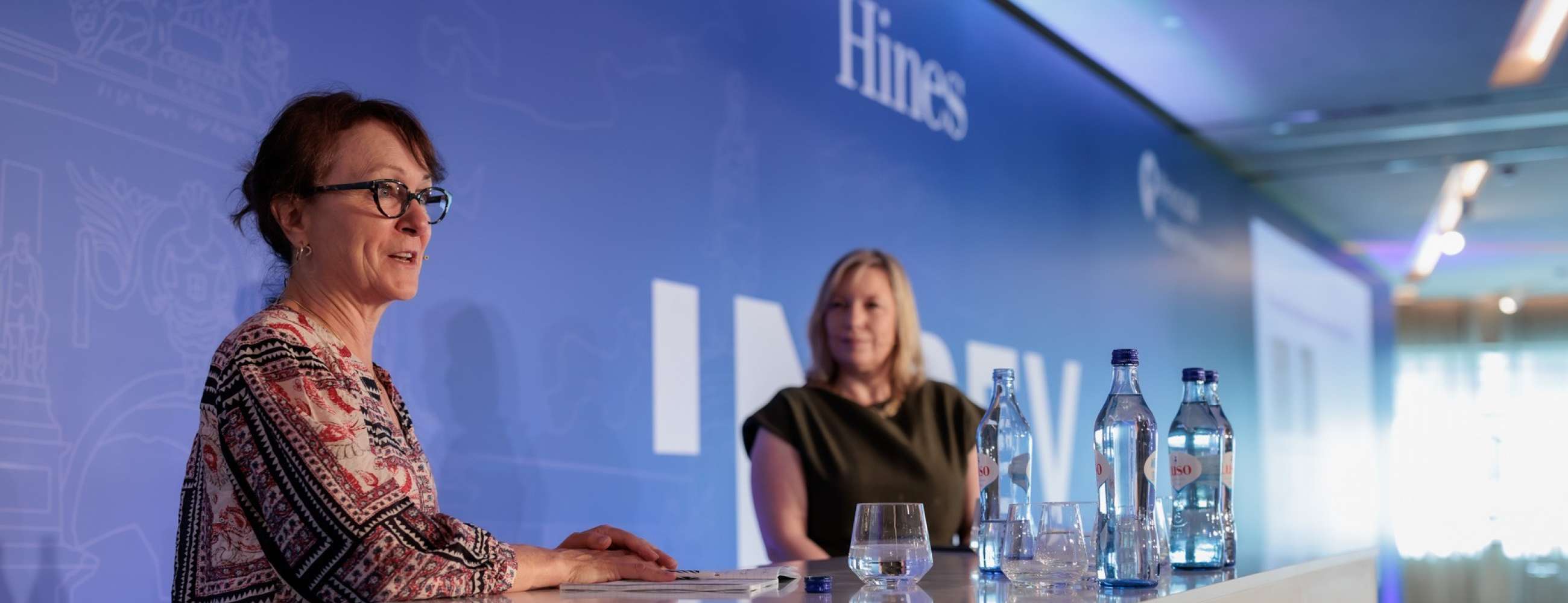
Karin von Hippel, Commentator on Security, Defence and International Relations and Director-General (2015-2025) of the Royal United Services Institute (RUSI), opened the conference with a sharp analysis of the changing global order, highlighting a clear shift away from the US-led post-World War II structure toward a more multipolar and increasingly chaotic international scene. The erosion of US leadership has introduced growing unpredictability and a lack of trust in traditional alliances, leaving many countries uncertain about future security guarantees, especially in relation to Taiwan.
She pointed to the growing strategic importance of India as countries seek to de-risk from overdependence on China, while tensions in the Middle East increase volatility. In particular, the ongoing Iran crisis and its regional implications were discussed, with some cautious optimism in areas like Lebanon, where the government has a chance to strengthen its effectiveness.
Turning to Ukraine, Karin noted the country’s rapid progress in developing its own defence production capabilities, now accounting for most of its military needs. Yet Russia continues to evade sanctions and resupply its arsenal, reinforcing the need for European countries to play a stronger role. The conflict, she warned, has global implications, with parallels that could emerge in Taiwan or the Baltic states if aggression goes unchecked.
Karin also drew attention to the complex intersection of new technologies, energy demand and sustainability. Innovations such as AI and cryptocurrency are driving up the need for critical minerals and the importance of controlling their supply. In an increasingly unstable world, Europe should be ready to adapt to a future defined by growing insecurity and fewer guarantees.
Audience poll:
Which geopolitical issue do you think will have the biggest impact on our industry over the next 12 months?
- The US administration’s trade and foreign policy - 74%
- Escalating conflict in the Middle East - 13%
- Disruption in the Red Sea (global supply chains) - 4%
- Ongoing Russia–Ukraine war - 3%
- Diverging climate policies between major powers (e.g. EU, U.S., China) - 6%
Looking ahead five years, which of the following players do you believe will be the most influential globally?
- China - 23%
- European Union - 3%
- India - 6%
- Technology companies/non-state actors - 26%
- United States - 42%
How do you think the unpredictability of Donald Trump (and his administration) affects US global influence and trust?
- It’s becoming noise – people are starting to tune him out - 10%
- It creates deep uncertainty – hard to trust any official position - 52%
- It still matters – the US President and administration carry weight - 36%
- Not sure – 2%
Real estate in the new geo-economic reality - making Europe great again! (Simon Durkin)
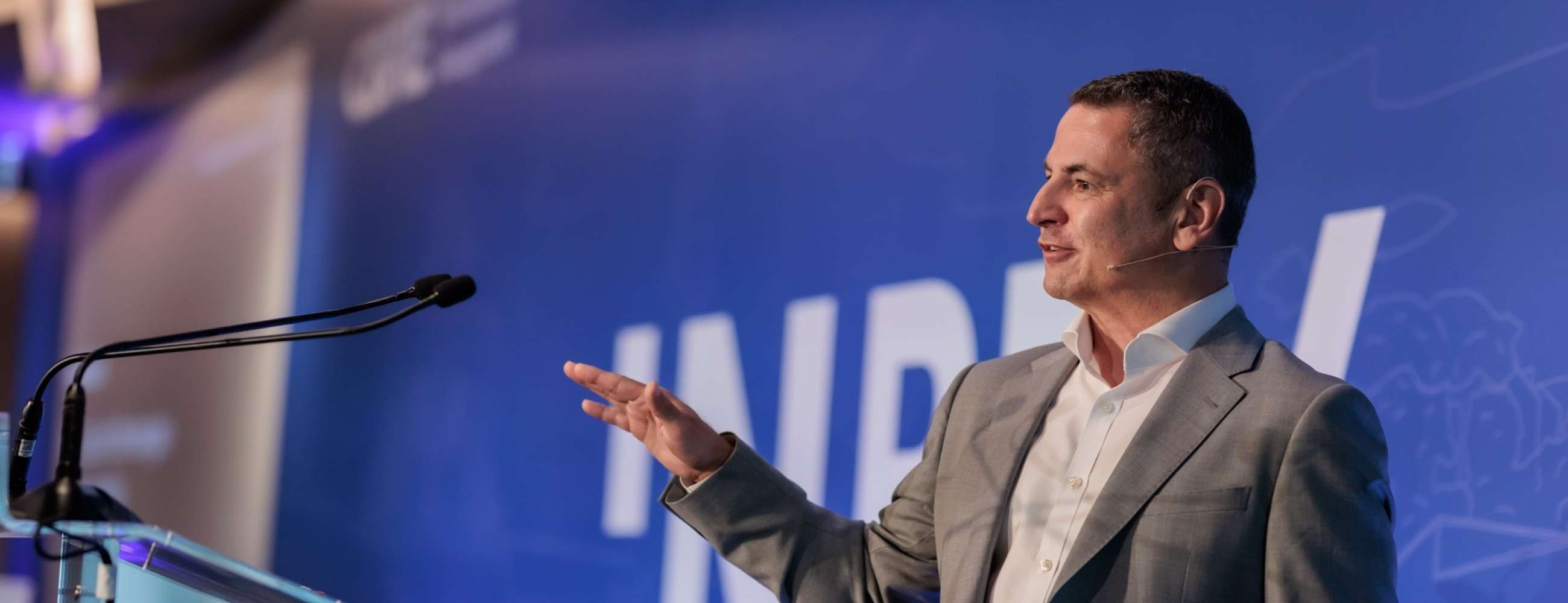
Simon Durkin, Global Head of Real Estate Research at BlackRock, shared his outlook on real estate in today’s shifting landscape. Despite rising interest rates, the occupational market has remained resilient. However, with broader uncertainty and each cycle presenting new challenges, investors must rethink traditional approaches.
Simon warned that excessive sensitivity to short-term news adds to market volatility and reflects a lack of long-term conviction. In this environment, private markets—especially real estate—can offer balance. Its local and individualistic nature creates opportunities for well-informed investors to find alpha through selective asset strategies.
Looking ahead, valuation repricing may offer a buffer, but performance will increasingly depend on asset and sector selection. With yield compression less reliable, long-term megatrends like demographics, digitalisation, and the energy transition will shape the future of the industry.
Audience poll:
What is the most important issue that concerns you as we head into a new cycle?
- The macro, interest rates and inflation - 35%
- Geopolitics - 49%
- Demographics - 9%
- Decarbonization - 3%
- Technology - 3%
Repricing, risk and resilience: the investor perspective (Charlotte Robinson, Jeroen Winkelman and Pedro Duarte)
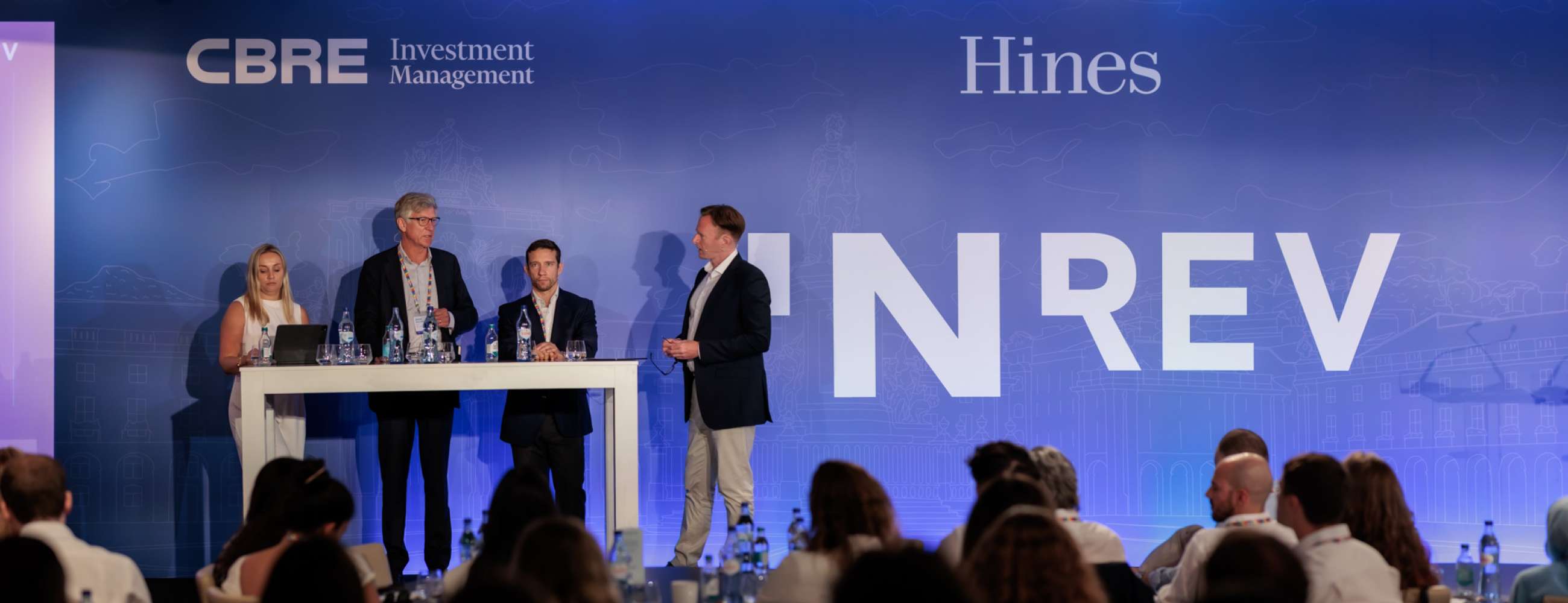
In this dynamic investor panel moderated by James Morrow, we heard from guest panellists Charlotte Robinson (APG Asset Management), Jeroen Winkelman (a.s.r. real estate) and Pedro Duarte (Fidelidade). They shared candid views on navigating risk, repricing and long-term resilience in today’s evolving market.
Charlotte explained how the fund’s long-term outlook and civil service mandate drive investments aligned with megatrends, often through joint ventures and platform deals to ensure control. Since the GFC, APG has moved away from commingled funds in favour of smaller, more tailored investments.
Jeroen observed a trend towards consolidating fund manager relationships to gain scale and reduce costs. While ESG remains on the radar, income, timing and risk-return profiles often take priority. Pedro Duarte (Fidelidade) emphasised ESG implementation, noting the importance of clear net-zero targets and decisions around which assets to retain or sell.
Geopolitical risk is now priced more precisely at the deal level. Charlotte highlighted the use of country risk tools and increased focus on fundamentals during underwriting.
In terms of market trends, office-to-residential conversions were viewed as overhyped due to complexity and cost, while retail—particularly high street—was flagged as underrated.
All panellists agreed that what truly sets managers apart is not just performance, but trust, transparency, and the ability to communicate openly, even about past mistakes. As Pedro put it, the best managers underpromise and overdeliver.
Force of nature: the importance of biodiversity in the built environment (Emily Hamilton)
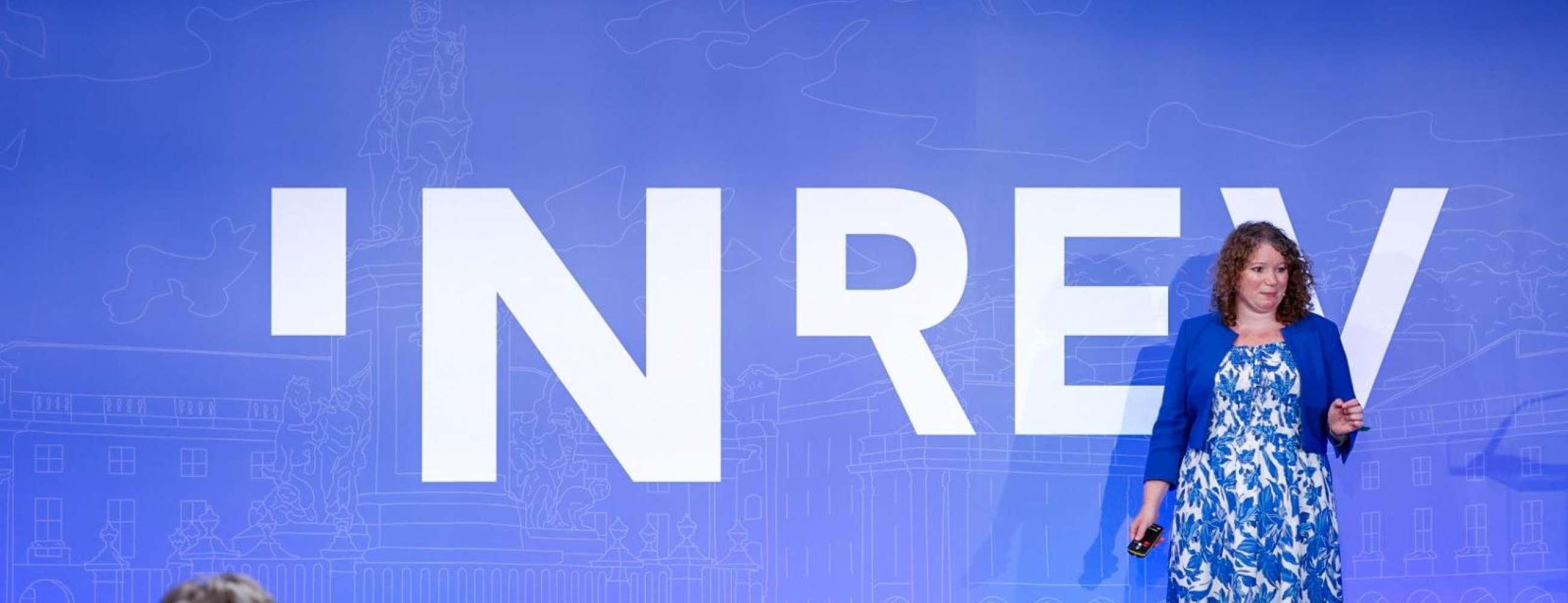
Emily Hamilton, Head of ESG at Savills Investment Management, opened her session with personal photos from her garden—to underscore that biodiversity is not just a scientific concept, but something we see, feel, and depend on every day. Biodiversity loss has accelerated with climate change since the 1970s, and with the real estate sector responsible for roughly 30% of global resource use, it holds both the responsibility and opportunity to become a force for ecological good.
Emily explored the growing importance of biodiversity for real estate investors—from tightening regulations and nature-related disclosures to the advantages of adopting biodiversity-positive strategies. Nature-based solutions offer enhanced local ecosystems, improved water management, better tenant wellbeing, and even increased efficiency of technologies like solar panels.
Using the Bourne Quarter development in the UK as a case study, she demonstrated how biodiversity can be embedded from the outset. Once a brownfield airfield, the site was regenerated into a vibrant natural habitat with guidance from ecologists, native landscaping, and features supporting species like the Barbastelle bat.
Despite clear momentum, challenges remain—from insurance hurdles and skills shortages to the cost of maintaining green infrastructure. Yet, Hamilton argued that the sector is moving toward scalable solutions through landscape-level planning, natural capital strategies, and biodiversity-linked investment models. Her final message: climate resilience and biodiversity are deeply intertwined, and success lies in context-specific, evidence-led actions that embed nature throughout the real estate lifecycle.
Audience poll:
One species goes extinct every:
- 20 minutes - 49%
- 40 minutes - 40%
- 60 minutes - 10 %
Be seen, be heard: building your personal brand with purpose (Beatrice Ronchetti)
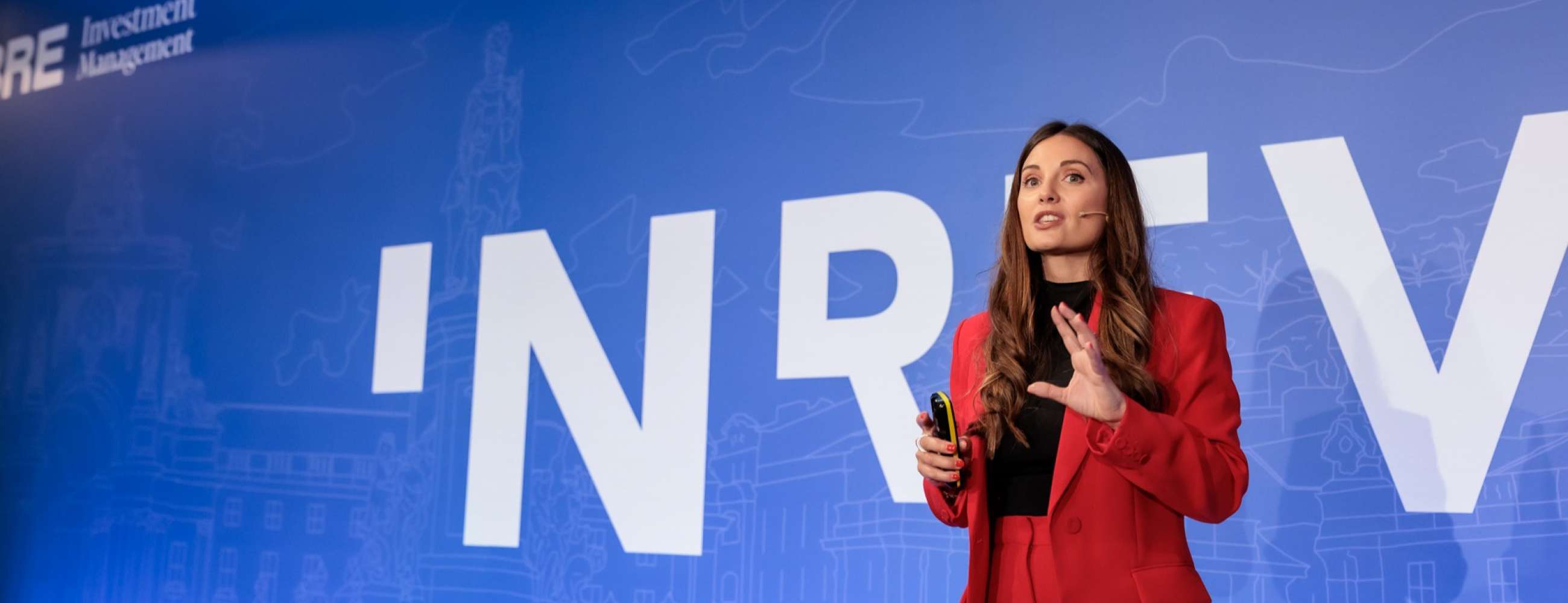
In this practical and inspiring session, Beatrice Ronchetti tackled one of the biggest barriers to personal branding: fear—of not knowing what to post, of seeming self-promotional, or of looking silly. But in an industry like real estate, where relationships and trust are everything, visibility is no longer optional—it’s essential. ‘Being great at your job isn’t enough if no one sees it,’ she reminded the audience.
Beatrice made the case for investing in your personal brand, especially on platforms like LinkedIn, where personal profiles get five times more reach than company pages. With only 1% of users posting weekly, the opportunity to stand out is huge. Your brand is what people say about you when you’re not in the room—and they won’t say anything if they don’t know who you are.
She introduced the CLEAR framework to help attendees build their brand with purpose. Start by identifying your Client—your target audience and what they need, not just who they are. Then Link up—find and connect with the right people as a human, not just a job title. Use your profile to clearly explain the value you offer. Educate through content: mix pain points, proof, and personal peaks to share your story and show impact. Stay Active—engage, comment, and start real conversations. And finally, Reach out— Start real conversations that lead to opportunity.
Her final message: a strong personal brand isn’t about self-promotion, it’s about showing up with purpose, building trust, and creating real connection.
Seeing orange, clarity, cycles and conviction (Victor van Bommel and Andrea Carpenter)

In an engaging keynote conversation, Andrea Carpenter, Diversity Talks Real Estate, interviewed Victor van Bommel, who shared his personal and professional journey that led to the founding of Orange Capital Partners (OCP), now managing €5 billion in residential real estate. Reflecting on his early career, Victor described how being young and bold gave him direct access to CEOs and real insight into the inner workings of listed real estate. After roles at ABN AMRO and Goldman Sachs—where he discovered a talent for sales—he helped take two German companies public, gaining a deep understanding of both listed and private markets.
But it was personal tragedy and a moment of clarity that drove him to become an entrepreneur. The sudden realisation of how short life can be gave him the push to leave the corporate world and take a leap into building his own business. Starting during a liquidity crisis, OCP grew with a strong belief in doing things differently—flat hierarchy, young talent, and a sharp focus on long-term value.
Victor emphasised the importance of trusting people early, encouraging junior staff to run deals, and fostering a diverse and inclusive culture—OCP now has 40% women in its team of 80. With investments across Europe, including Germany, Denmark and Ireland, he sees volatility as opportunity and believes the best time to invest is when others step back.
His advice? Build strong teams, trust your instincts, and don’t wait too long to act—because in real estate, the right opportunity often looks like a distressed one.
Climbing your own Everest: resilience, mindset and the power of small steps (Bonita Norris)
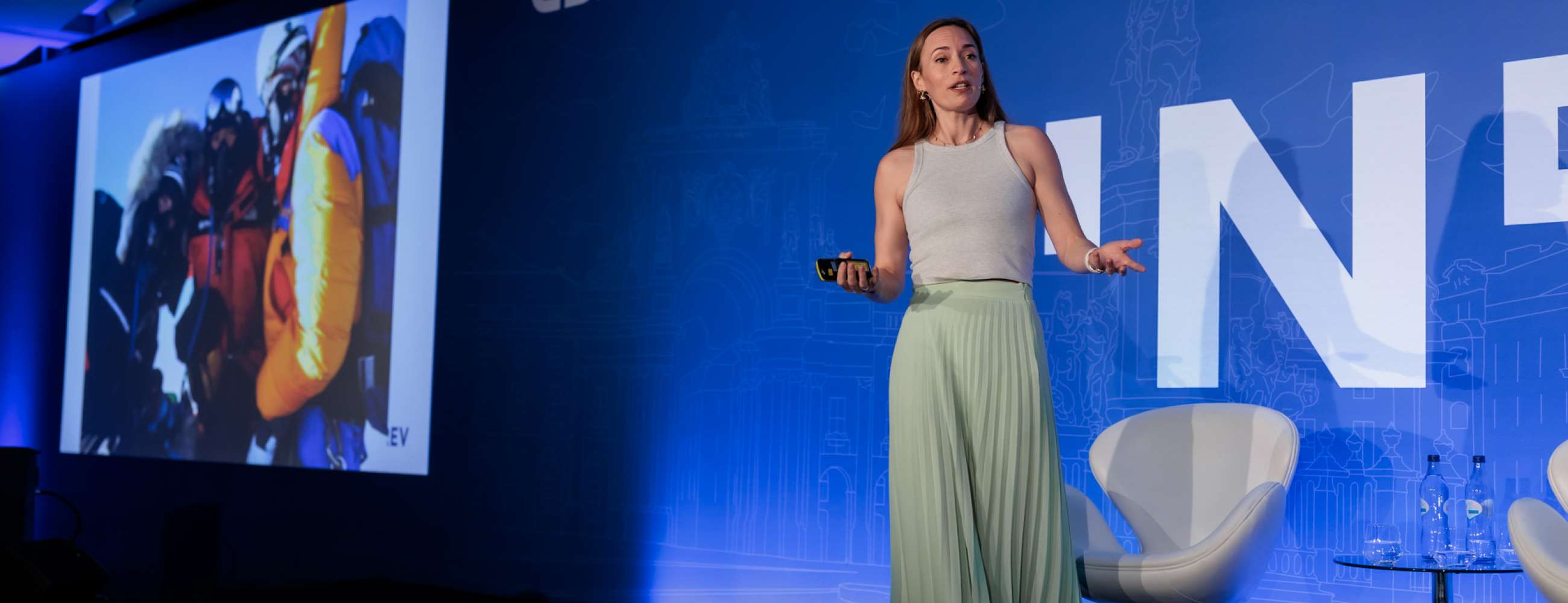
At just 22 years old, Bonita Norris became the youngest British woman to reach the summit of Mount Everest—a goal sparked not by lifelong ambition, but by a spontaneous decision to attend a university lecture. In that lecture, she was told of how summiting Everest would allow her to see the curvature of the earth. What followed was a journey defined by grit, courage, and the power of mindset. Despite doubts and setbacks, Bonita taught herself to climb, joined an expedition team, and raised the £50,000 she needed to take part.
She spoke candidly about the realities of high-altitude mountaineering: exhaustion, extreme cold, avalanches, and fear. But her mantra—focus, not fret—guided her through. Bonita shared a video of herself crossing a rickety ladder above a 50-metre drop, and how despite being paralysed by fear, she reminded herself that bravery is often found in the smallest steps forward.
One of her most powerful lessons came during a moment of near-defeat—at -30°C while struggling to take another step in deep snow, a teammate’s simple gesture reignited her purpose. He encouraged her to stop, to turn off her headlight illuminating the challenging journey ahead, and to look up. The night sky was full of beautiful stars, and that moment, she said, was a reminder of how taking a step back can completely change someone’s mindset.
When Bonita finally reached the top, a cloud obscured the view she had dreamed of—but it no longer mattered. The real success was what she and her team had achieved together.
Her message was clear: success is built on resilience, perspective, and the people around you. You don’t climb Everest alone—and you don’t overcome life’s challenges alone either.
Presentations
Thank you to our sponsors
